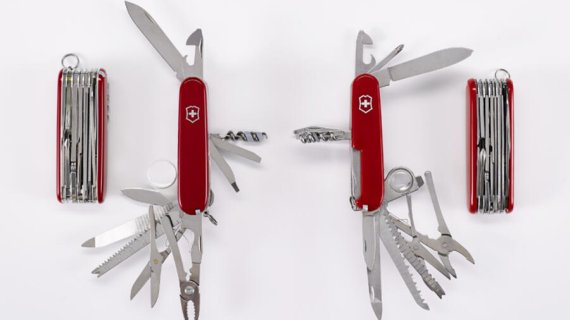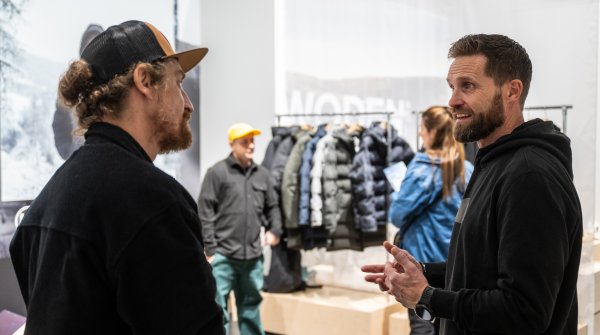
The figures are alarming: in 2017, German customs seized goods worth more than 196 million euros due to product and brand piracy. Around 148 million euros of this was attributable to the apparel category alone, including shoes and accessories such as bags, watches and eyewear.
Compared to 2015, when goods with a total value of 132 million were taken out of circulation, this represents an increase of more than 30 percent within two years. The number one country of origin of fake goods: China, followed by Hong Kong. These countries accounted for 75 percent of all goods. Turkey also leads the way in counterfeit clothing.
The number of unreported cases of fakes is estimated to be much higher. What is actually filtered out and destroyed by customs at the borders is just a drop in the bucket. "The Internet in particular has opened the door to fraudsters," explains Stefan Hoffmeister, Head of Online Brand Protection at Ebrand Services in Munich. He is hired by companies to search for counterfeits or plagiarisms on the web - on online marketplaces, in social media and in app stores.
Ebrand Services serves brand companies across Europe from various industries, including several sports brands. The reason for the increase is quickly explained. Hoffmeister: "The Internet makes it very easy to get started. Through marketplaces like Amazon, Alibaba and Ebay, a counterfeiter can set up international distribution within days and sell directly to customers." Counterfeiting is now more lucrative than drug trafficking and, above all, less risky, he says.
The damage caused by product and brand piracy is enormous. A study by the EU Intellectual Property Office (EUIPO) published in 2018 puts the loss of revenue across the EU at 60 billion euros. German manufacturers of clothing, shoes and accessories would thus lose 4.2 billion euros annually, writes Handelsblatt. 66,500 jobs would be lost as a result.
The counterfeiters' revenues, in turn, finance terrorism and other crimes. In addition, although counterfeit products resemble the original, they usually show serious differences in function. For example, counterfeit sports equipment and sports nutrition can quickly become hazardous to health. In addition, it is annoying for the customer and damaging to the brand's image when an expensive product simply does not deliver what the customer expected.

There are different types of piracy: the classic counterfeit that tries to be a copy of the original product, the almost identical plagiarism, and the product that simply uses the brand name without imitating a concrete product.
Hoffmeister collects the evidence and turns it over to attorneys. If successful, the products will be destroyed, accounts blocked and stores closed. Amazon and Alibaba have long been criticized for doing too little against counterfeiters. In the meantime, AI programs and big data are helping the retail giants to stem the tide of plagiarism.
Alibaba published a blacklist of 100 companies selling counterfeits online in 2017. Combined with a Big Data-backed anti-counterfeiting initiative, this led to the closure of 240,000 online stores on the Taobao marketplace, Alibaba reported a year later. Amazon also just announced Project Zero, which aims to reduce counterfeit products to zero. With this, Amazon wants to automatically detect and take action against counterfeits through image processing and pattern recognition.

The German start-up authorized.by addresses the issue of illegal trade from a different angle: Instead of putting a stop to the "bad guys," it labels the "good guys" and ensures more transparency and trust in online trade. "We play out the real business relationship between brand and retailer via an authorization seal in real time," explains Felix Nottensteiner, founder and CEO of authorized.by.
That is, by means of a seal, authorized.by signals to the customer that the online retailer is authorized by the brand to sell that product. The seal is initialized in real time with each page call and is thus forgery-proof. Brands such as Ortlieb, Tatonka, Deuter and Patagonia are already using the tool, strengthening trust in online retail. "The goal," says Nottensteiner, "is to use the seal across channels, including marketplaces."

The German start-up authorized.by dedicates itself to the topic of illegal trade from another side: Instead of putting a stop to the "bad guys", it identifies the "good guys" and ensures more transparency and trust in online trade. "We play out the real business relationship between brand and retail via an authorization seal in real time," explains Felix Nottensteiner, founder and CEO of authorized.by.
That means: Using a authorized.by seal signals the customer that the online retailer is authorized by the brand to sell this product. The seal is initialized in real time with every page call and is therefore forgery-proof. Brands such as Ortlieb, Tatonka, Deuter or Patagonia are already using the tool and are thus strengthening confidence in online trading. According to Nottensteiner, "The aim is to use the seal across channels, i.e. also on marketplaces."
- ISPO awards
- Mountain sports
- Bike
- Design
- Retail
- Fitness
- Health
- ISPO Job Market
- ISPO Munich
- ISPO Shanghai
- Running
- Brands
- Sustainability
- Olympia
- OutDoor
- Promotion
- Sports Business
- ISPO Textrends
- Triathlon
- Water sports
- Winter sports
- eSports
- SportsTech
- OutDoor by ISPO
- Heroes
- Transformation
- Sport Fashion
- Urban Culture
- Challenges of a CEO
- Trade fairs
- Sports
- Find the Balance
- Product reviews
- Newsletter Exclusive Area
- Magazine




